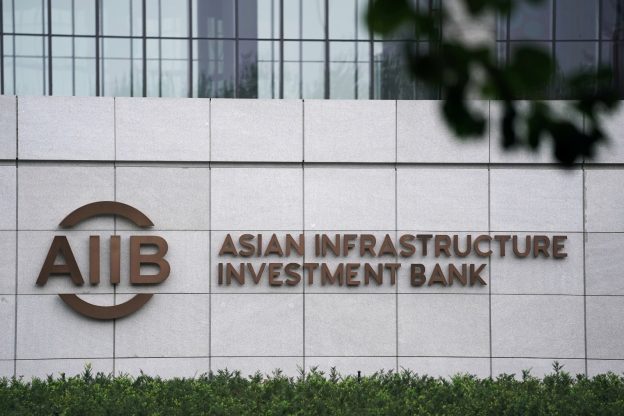The Asian Infrastructure Investment Bank’s (AIIB) Board of Directors have approved a loan of $250 million to help Pakistan strengthen its response to the social and economic fallout from the Covid-19 pandemic, said the financial institution in a press release at the end of year 2023.
The AIIB said that the loan is co-financed by the World Bank, adding that this development policy financing will help bolster the government’s Resilient Institutions for Sustainable Economy Program.
The RISE Program is a part of a set of measures Pakistan has undertaken towards recovery from the impact of the pandemic. The program aims to stimulate investment in human capital, expand social safety nets, improve the emergency health infrastructure and foster economic growth.
The investment bank stated that the latest loan brings AIIB total support to Pakistan’s Covid-19 response to $750 million.
The statement mentioned that the health crisis is expected to have far-ranging and long-term repercussions on growth, which may undermine the hard-fought progress the country has made in restoring macroeconomic stability.
The AIIB said that pandemic has taken a toll on employment in the formal and informal sectors, with the poor, women and other vulnerable groups disproportionately affected.
“The pandemic has rapidly evolved in Pakistan and now threatens to undo many of the hard-won gains made in reducing poverty over the past two decades,’ said AIIB Vice President, Investment Operations, Konstantin Limitovskiy.
“Our immediate support is critical and will contribute to the government’s efforts to mitigate pandemic-related shocks, so that the country may continue on its path to sustainable development,” he said.
The AIIB said it does not have a regular instrument for policy-based financing, the Bank is extending such financing on an exceptional basis under its Covid-19 Crisis Recovery Facility to support its members through projects co-financed with the World Bank or the Asian Development Bank.
It merits mentioning that The World Bank had announced in December 2023 that its board of directors had approved the long-awaited $350 million loan ‘2nd Resilient Institutions for Sustainable Economy (RISE-II) Operation’ to Pakistan to support key macroeconomic reforms in energy, taxation and business environment.
As per the announcement of the bank, the financing was aimed to strengthen fiscal management and promote competitiveness for sustained and inclusive economic growth
The operation contributes to better fiscal management by improving fiscal policy coordination, enhancing debt transparency and management, strengthening the taxation of property, and improving the financial viability of the power sector, the bank had said, adding that the financing seeks to foster growth and competitiveness by reducing the cost of tax compliance, improving financial sector transparency, encouraging the use of digital payments, and promoting exports by lowering import tariffs.
The bank believed that Pakistan needed urgent fiscal and structural reforms to restore macroeconomic balance and lay the foundations for sustainable growth.
“RISE-II completes the first phase of tax, energy and business climate reforms geared to raising additional revenues, improve the targeting of expenditures and stimulate competition and investment.”
World Bank’s team leader for the operation Derek H. C. Chen said that based on the foundations laid through RISE II and parallel support by other international financial institutions, Pakistan had the opportunity to tackle long-standing structural distortions in its economy after the upcoming general elections. “Failing to use this opportunity would risk plunging the country back into stop-and-go economic cycle,” he said.
Importantly, the combined $600m program would help Pakistan shore up foreign exchange reserves while taking measures to enhance the policy and institutional framework for improved fiscal management and regulatory conditions that support growth and competitiveness.
AIIB approves US$250 m loan after WB’s US$350m to help Pakistan
on 03/01/2024








